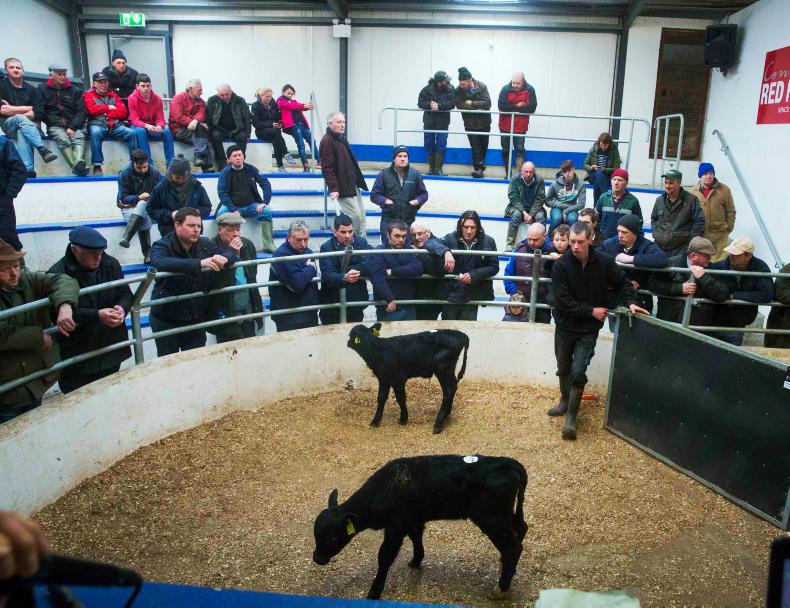Calf transport
With thousands of calves moving from dairy farms to marts and beef farms in the coming weeks, stress levels and exposure to disease should be kept to a minimum.
Under Department of Agriculture regulations, calves must not be moved from the holding of birth before the calf reaches 10 days of age.
The calf must also be healthy and free from disease before movement.
Make sure all paperwork is completed for farm-to-farm sales.
There are a couple of points to note around calf movement:
Ensure the trailer is washed down and disinfected between loads of calves.Make sure the trailer has a good bed of straw in it or wood shavings.Use a dividing gate to minimise group size and reduce stress during calf transport.Use a covered trailer with side vents.Don’t overload the trailer.Get the calves home and off the trailer as quickly as possible.Calf arrival
When calves arrive on the farm, it’s important to get them settled into their new surroundings as quickly as possible.
Good stockmanship and supervision for the first few days is extremely important.
Regardless of the feeding method implemented on the farm, there are several factors that are within the calf rearers' control to ensure calf health and growth rates are kept to a maximum.
Key points for newly purchased calves:
Unload immediately on arrival.House in separate air space to other older stock on the farm.Group according to age and size.Pen in groups of no more than eight.Don’t mix with other older home-reared calves.Separate slow or timid drinkers into separate pens.Pens/accommodation should be:
Be cleaned and disinfected between groups.Be rested for seven to 10 days between groups.Be bedded in a deep bed of straw.Be bedded daily during the rearing stage.Be free from draughts.Don’t over-stock sheds – 1.1m2/calf up to eight weeks of age.Have adequate feeding space – 350mm per calf.Make sure there is a supply of fresh clean water – for every 1kg of concentrate consumed, a calf will drink five litres of water.
Calf transport
With thousands of calves moving from dairy farms to marts and beef farms in the coming weeks, stress levels and exposure to disease should be kept to a minimum.
Under Department of Agriculture regulations, calves must not be moved from the holding of birth before the calf reaches 10 days of age.
The calf must also be healthy and free from disease before movement.
Make sure all paperwork is completed for farm-to-farm sales.
There are a couple of points to note around calf movement:
Ensure the trailer is washed down and disinfected between loads of calves.Make sure the trailer has a good bed of straw in it or wood shavings.Use a dividing gate to minimise group size and reduce stress during calf transport.Use a covered trailer with side vents.Don’t overload the trailer.Get the calves home and off the trailer as quickly as possible.Calf arrival
When calves arrive on the farm, it’s important to get them settled into their new surroundings as quickly as possible.
Good stockmanship and supervision for the first few days is extremely important.
Regardless of the feeding method implemented on the farm, there are several factors that are within the calf rearers' control to ensure calf health and growth rates are kept to a maximum.
Key points for newly purchased calves:
Unload immediately on arrival.House in separate air space to other older stock on the farm.Group according to age and size.Pen in groups of no more than eight.Don’t mix with other older home-reared calves.Separate slow or timid drinkers into separate pens.Pens/accommodation should be:
Be cleaned and disinfected between groups.Be rested for seven to 10 days between groups.Be bedded in a deep bed of straw.Be bedded daily during the rearing stage.Be free from draughts.Don’t over-stock sheds – 1.1m2/calf up to eight weeks of age.Have adequate feeding space – 350mm per calf.Make sure there is a supply of fresh clean water – for every 1kg of concentrate consumed, a calf will drink five litres of water. 





 This is a subscriber-only article
This is a subscriber-only article









SHARING OPTIONS: